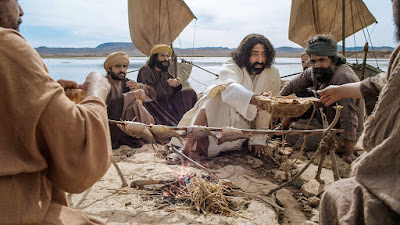There are some things that have been around long enough that we don’t have to think about them anymore. As we grow up, we just know what they mean, even though no one has maybe ever told us that.
If I said “mayday” what would you say that it means?
It's an emergency, right? How about this. How many times do you say it if you are declaring an emergency?
Three times. Repeating it prevents confusion from an actual emergency versus just talking about one.
The thing is, this is a statement that has only been around for about 100 years (it’s almost there) and it has nothing to do with the “May Day” celebration that happens in many places. It started at an English airport in 1923 that was asked to figure out something that would help folks to know that an emergency was taking place. They had many flights to Paris from there, so a French word was used.
Mayday is an English form of the French word m’aider, which means “help me,” which was itself a shortened version of the phrase venez m’aider, which means “come and help me.”
It is literally a cry for help, that when you say it three times, folks know exactly what you’re talking about.
To get to the scripture reading for this post, in John 21:1-19, we start back during holy week.
Maundy Thursday, the night of the Last Supper was a long night. Ultimately, we will see the disciples crying out for help.
They thought their world was coming apart.
They were scattering.
They didn’t know what was going to come next for them.,
They were pretty certain what was going to be next for Jesus after he was arrested.
Peter’s reaction shows this. He denies Jesus three times.
For all of the different ways that we can see this story and Peter’s denial of Jesus, one way to see it is that it was Peter crying out for help.
This was his Mayday.
His life was crashing down in front of him, and he couldn’t do anything about it.
He begins to think that things will get better when Jesus is resurrected, but then Jesus tells them that he isn’t staying with them, but that he’ll send the advocate, the Holy Spirit to them.
That’s not real reassuring to Peter, and through that we see that his Mayday isn’t over. Even after the resurrection, his emergency is still continuing.
Our scripture passage is Jesus answering Peter’s emergency.
Jesus is answering Peter’s Mayday.
This is something of a familiar story. In John’s Gospel this is the third time that Jesus will have appeared to the disciples. They have been out fishing all night, because they don’t really know what to do, so they do what they know. Then they see Jesus on the beach next to a fire.
He helps them to catch some more fish by directing them which side of the boat to cast their nets out onto, and then they come in. They figure out that its Jesus that is there, and he is working on breakfast for them.
At the end of the meal, Jesus asks Peter a question…three times.
Simon, son of John, do you love me?
Each time, Peter responds with
Yes Lord
And then Jesus responds with a variation of “feed my sheep” to each of Peter’s response to the question.
We can see, by Peter’s response to Jesus asking the question, that he is getting frustrated by being asked it, but Jesus is doing this for an important reason.
Peter isn’t over what he’s done yet. He’s trying, but you can see how hard he’s trying by the way that he is overcompensating in his answers. He regrets what he’s done, if he could take it back he would, but Peter denied Jesus three times, and so three times Jesus asks him, “do you love me?”
All of this is beating down Peter’s guilt, his shame, and the sin that he feels because of what has happened. Jesus wants him to get past this, and then ties Peter overcoming this with what is in store for him.
Peter is going to be the leader of this new movement. He will be the first and one of the greatest leaders that the church has ever had. But he only gets there because Jesus frees him from his past that is threatening to hold him back.
Jesus has to get Peter past his mayday.
I have regrets, you have regrets. We have things that we wish we would have done differently, things that we can’t take back.
Those are barriers to us going forward if they aren’t removed. But, like Peter, we can’t remove them ourselves. That’s not in our power, because they are a part of our emergency. We need to know that they have been removed.
This is Jesus response to Peter in this moment. Jesus is telling him that the barriers are gone, and Jesus uses whatever will be effective in the moment to make that happen. Not because Jesus needs those things, but because we need them in order to understand what Jesus has done.
Sometimes that means that Jesus overturns tables, or feeds 5000. Sometimes that means he heals the sick and questions the holy. Sometimes though, it means that Jesus sits on a quiet beach, with only his closest disciples and asks Peter the same question three times.
Jesus reaches out to us in the way that we’ll understand. Ours is to listen for his voice as he takes us forward.
Images are from LumoProject.com, downloaded at freebibleimages.org










No comments:
Post a Comment